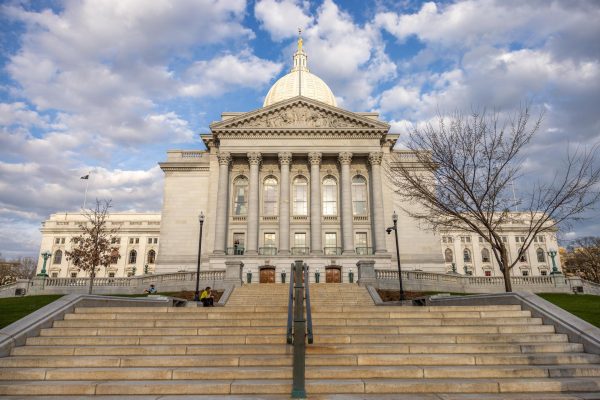Gov. Tony Evers signed Wisconsin Senate Bill 668 April 4, ordering the state’s Department of Financial Institutions to set up an ABLE program for residents or join one of the existing multi-state consortiums.
ABLE accounts, a special type of tax-advantaged savings account, allow people with disabilities to save and invest money for expenses related to health issues without losing access to other vital forms of assistance such as Supplemental Security Income, Medicare or Medicaid, according to the ABLE National Resource Center.
The ABLE program increases access to needed services and is a crucial workaround to the structural problem that forces many individuals with disabilities into perpetual poverty, Wisconsin Board for People with Developmental Disabilities Legislative Liaison Tami Jackson said.
“ABLE accounts were established to allow people to set aside a certain amount of their earnings so that those folks have a nest egg which they can use to pay for things that they normally would not be able to afford,” Jackson said.
The Achieving a Better Life Experience Act was passed in Congress and signed by former President Barack Obama in 2014, and was the first piece of legislation which recognized the extra costs of living with a disability, according to the ABLE National Resource Center.
Though the ABLE Act is a federal law, individual states are tasked with developing their own programs and the regulations and benefits specific to each program can vary depending on the jurisdiction, according to the ABLE National Resource Center.
The lack of standardization for ABLE programs creates difficulty for experienced financial planners, as well as people with disabilities and their families, according to a 2017 study by researchers at Eastern Michigan University.
Wisconsin is the only state in the country that has yet to create its own ABLE program or designate an agency to assist residents in opening accounts elsewhere, making it difficult for people with disabilities and those helping them to know what types of assistance they’re eligible for, Jackson said.
“We’ve talked to a lot of family members who are eligible to open ABLE accounts and they don’t know it, because there’s no way they would unless they knew exactly what questions to ask,” Jackson said.
ABLE accounts allow people with disabilities to save outside the stringent limits of how much money somebody with disabilities can earn and have in their checking account, Disability Rights Wisconsin Advocacy Specialist Joanne Juhnke said.
ABLE accounts also offer a place for savings to students with disabilities who may or may not be higher education bound, Juhnke said.
“Certainly the ABLE account can be used for education, and individuals with disabilities do go into higher education too, but it’s a different set of calculations,” Juhnke said. “This allows families to be able to save for their students with disabilities in a more or less equivalent way to what they do for their students who don’t have disabilities.”
According to Juhnke, the ABLE program is in the same part of the federal tax code that deals with 529 Educational Savings accounts, a tax-advantaged type of account.
Though there are some limits on how ABLE funds can be spent, the scope of ABLE is much broader than education costs, covering larger expenses as well as the daily needs of people with disabilities, Juhnke said.
Recalling the experience of moving funds for her daughter, who has a disability, from a 529 to an ABLE account, Juhnke highlighted the difficulty of navigating each state’s respective program and choosing one that worked for her family’s needs.
Being unable to save for her daughter’s future in the same manner she could for her older sister, who does not have any disabilities, was frustrating and unequal, Juhnke said.
The passage of SB 668 as an important step in the right direction, removing barriers that prevented people with disabilities in Wisconsin from accessing vital services available to almost every other American, Juhnke said.
“We are among the last of the states to have something for our residents in particular,” Juhnke said. “So it’s really high time, and this will swing the doors open wide for folks who do not have the bandwidth to compare the different programs offered in other states.”
The Wisconsin Department of Financial Institutions is now tasked with determining the best approach to provide ABLE account services for the state’s residents, according to the bill text. DFI must complete their review within a timeframe of seven months, after which Wisconsin will move forward in establishing its own program or joining a multi-state compact.
Looking forward, the federal government and Wisconsin Legislature can continue to support people with disabilities by more comprehensively funding special education programs, which are mostly being paid for by school districts themselves, Juhnke said.
“Districts are on the hook for $1.25 billion per year across the state in special education funding that the feds and the state are not living up to,” Juhnke said. “In a just and right world, the state and federal government should be covering 100% of the expenses that are incurred by the Individuals with Disabilities Education Act, a federal law.”














